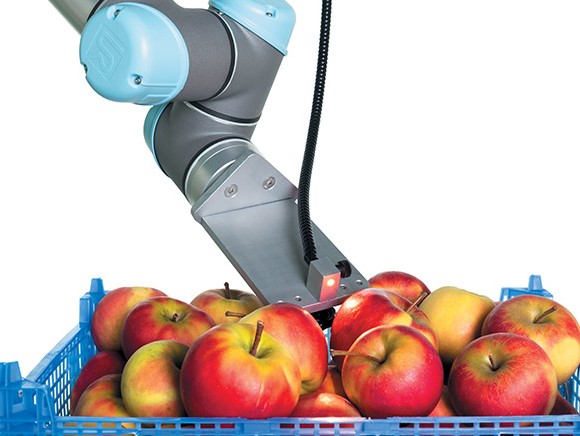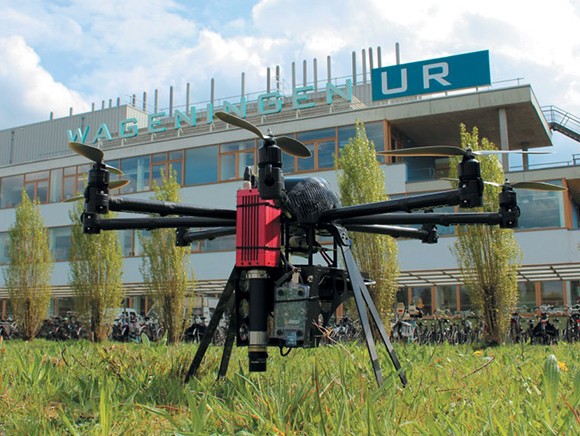
From 3D-printed hospital meals to robotic milking systems and from floating farms to test-tube meat, the Netherlands is bursting with innovative entrepreneurs. Here are a selection of the innovations that were on display at the ‘Food to Be’ event from 30 May to 5 June in Eindhoven.
At ‘Food to Be’, the Netherlands’ 45 most innovative entrepreneurs, scientists and designers revealed which innovations they believe are set to make a real difference. The future of food is high on the political agenda, both in the Netherlands and within Europe. This event was organised in the context of the Dutch presidency of the EU and the European council on agriculture. For the occasion of the informal council on agriculture, Dutch Secretary of State van Dam paid a visit to the event accompanied by 27 EU ministers for agriculture and European Commissioner Phil Hogan. This expo was the first edition of The STEC, a national platform for the very latest technology.
Martijn van Dam: “The Netherlands and Europe must lead the way in devising innovative ways of feeding the world’s population. To enable us to do that, we need a common agricultural policy that offers a clear framework. This new agricultural policy (from 2020 onwards) must focus even more strongly on sustainability and innovation. Europe has all the ingredients to play a pioneering role: top-class universities, fantastic manufacturers and innovative ideas. This Food to Be expo provides us with the inspiration.”
Vegetarian steak: This innovation results in an entirely plant-based steak. The method used is shear cell technology, in which plant-based material is deformed to result in the desired fibre-like structure. It is an extremely promising result in the search for sustainable, plant-based meat replacements.
Drones4food: Using various sensors and measuring equipment, Wageningen UR’s Drones4food can collect data and convert it into relevant information for farmers. This enables the farmer to apply the right quantities of fertilisation and crop protection agents in precisely the right place. This form of precision agriculture saves costs and is more ecofriendly so it is attracting interest from farmers all over the world.
Food scanner: Consumers can take things into their own hands by scanning their food using affordable mini infrared scanners. People can operate these scanners themselves to analyse the chemical composition of everyday food products and, in the future, will also be able to check freshness and other product characteristics. Within a couple of seconds of using the scanner, the fat, protein and calorie contents, for example, are displayed on your smartphone or tablet. But in the future it will also be possible to see the organic status and predict the shelf life of products without having to open the packaging.
Quality Phenomics Robot: Wageningen UR is working on a toolbox that enables companies to assess the quality of fruit, vegetables, flowers and potatoes at the start of fresh produce chains. The toolbox also includes a robot which can measure the quality of individual products based on the shape, colour and a near-infrared fingerprint. The robot will enable buyers and sellers of fruit and vegetables to automate the quality screening process without the risk of damaging the products. The robot is also intended to aid the development of new fruit and vegetable varieties by making it easier to analyse and assess their quality.

The European ministers of agriculture were also very enthusiastic about the concept of the online supermarket Picnic, which was one of the 45 Dutch organisations presenting their innovations during the expo. Picnic is an initiative of four businessmen: internet entrepreneurs Joris Beckers and Frederik Nieuwenhuys who previously owned Fredhopper, a well-known developer of e-commerce software; Bas Verheijen, former Marketing Director of Albert Heijn and C1000; and serial entrepreneur Michiel Muller who was previously involved in the Tango chain of unmanned petrol stations and Route Mobiel, a roadside assistance and recovery service. Supermarket chain Boni acts as buying partner. According to Michiel Muller, they received nothing but positive reactions: “Elizabeth Truss, the British minister of agriculture, said that Picnic could start a new revolution in her country. Many Brits already shop for groceries online but supermarkets always charge for home delivery. The ministers of agriculture were most enthusiastic about the way in which we help to dramatically reduce food waste. We only source from our suppliers the products that our customers have actually ordered. That enables us to avoid fresh products going to waste.”
Source: © WUR